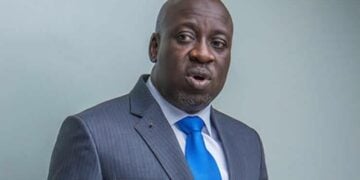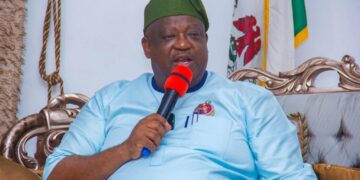The African Democratic Congress (ADC) has berated the ruling All Progressives Congress (APC) for failing to provide the desired leadership Nigeria needs since it assumed power in 2015.
The ADC national chairman, Dr. Ralphs Okey Nwosu, who stated this at the party’s leadership training in Abuja on Tuesday, added that leadership is the biggest challenge besetting Nigeria.
He added that the failure of leadership in the country influenced the party’s decision to embark on a series of leadership training to produce transformational leaders who will lead Nigeria in 2027.
Recall that the party last week entered a coalition with three groups, Coalition for The Protection of Democracy (COPDEM), Justice Group and Farmers Club of Africa.
However, speaking at the event yesterday, Nwosu said that Nigeria needs devotional and committed leaders with the fear of God.
He regretted that the “All Progressives Congress (APC) led federal government has not been able to provide purposeful leadership to the country since 2015.”
Nwosu added, “Leaders must be humble and have integrity; transformational leaders who will lead by example.”
According to him, leadership is not about holding a position but should be ready to shoulder responsibility and delivery.
Nwosu explained that the trainees would be taught both Christian and Moslem perspectives of leadership as examples of leadership that Nigeria needs.
Deputy national secretary Dr. Nkem Ukandu, said Nigeria needs visionary leaders who drive transformational change in the country.
“Many leaders fail due to lack of purpose, resilience or integrity,” Ukandu stated, adding that Nigeria needs Joseph Model, “his ability to navigate adversity, manage resources wisely, and bring solutions to societal problems.”
He stated that a leader must have a dream, “like Joseph dreamt that he was a leader, and it came to past.
“Martin Luther King Jnr. said he had a dream, a dream where there will no longer be racial discrimination in America.
“APC came to power in 2015 without a vision and that was why the administration failed.”
The Deputy National Secretary regretted that leadership in Nigeria has not been organic, noting that few party delegates only gather and choose candidates who were presented to the electorate to make a choice.
“Leadership in Nigeria is positional and based on influence. Leadership is not just about holding positions of power; it is about influence, resilience, and the ability to solve real-world challenges,” he added.





